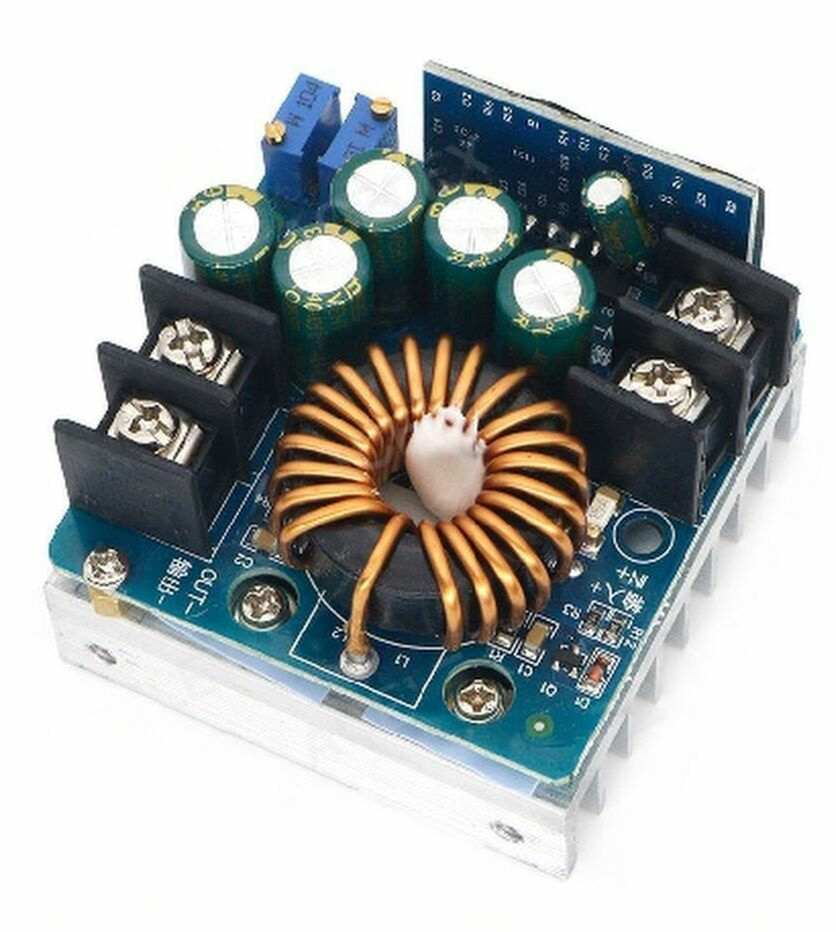Unlocking Efficiency: The 1W DC/DC Converter
A DC/DC converter is an essential electronic device used to transform direct current (DC) voltage from one level to another efficiently. This versatile component is widely employed in various applications, including power supplies for electronic gadgets, renewable energy systems, and electric vehicles. By employing techniques such as pulse-width modulation, it can step up (boost) or step down (buck) voltage levels while maintaining a steady output. This conversion process minimizes power loss and ensures the proper functioning of electronic circuits. DC/DC converters play a crucial role in modern electronics, enabling voltage compatibility across various components, and making them indispensable in our increasingly electrified world. These converters are designed to handle low power levels, typically up to 1 watt, making them ideal for applications where space and energy efficiency are paramount
In the realm of power electronics, the 1W DC/DC converter stands as a small yet mighty innovation. This compact device plays a pivotal role in various applications, from portable electronics to renewable energy systems. In this blog, we’ll delve into the world of 1W DC/DC converters, exploring their significance, functionality, and real-world applications.
Understanding the 1W DC/DC Converter
At its core, a 1W DC/DC converter is an electronic circuit that transforms one voltage level into another while maintaining power efficiency. It serves as a crucial component in power management, allowing the supply of the precise voltage required for a particular device or system. These converters are designed to handle low power levels, typically up to 1 watt, making them ideal for applications where space and energy efficiency are paramount.
The operation of a 1W DC/DC converter involves the use of switching elements such as transistors or integrated circuits. These components rapidly switch on and off to control the flow of electrical energy, effectively stepping up or down the voltage. This dynamic switching process enables the converter to maintain a stable output voltage, even when the input voltage varies.
Applications of 1W DC/DC Converters
- Portable Electronics:
One of the primary applications of 1W DC/DC converters is in portable electronic devices like smartphones, tablets, and wearables. These converters help regulate the voltage supplied to critical components, ensuring reliable performance and longer battery life.
- IoT Devices:
In the rapidly expanding Internet of Things (IoT) ecosystem, 1W DC/DC converters find their place in sensors, smart meters, and other low-power devices. They enable these devices to operate efficiently, extending their operational lifespans in remote or battery-powered setups.
- Renewable Energy Systems:
Renewable energy sources like solar panels and wind turbines often produce varying voltage levels. 1W DC/DC converters are used to stabilize the output voltage, making it compatible with the grid or storage systems. This ensures that every bit of energy harvested is efficiently harnessed and put to use.
- Medical Devices:
Medical equipment, especially those used in critical care, rely on precise voltage control for accuracy and patient safety. 1W DC/DC converters contribute to the reliability of devices such as infusion pumps, ventilators, and blood analyzers.
- Automotive Electronics:
In the automotive industry, where space is limited and power efficiency is crucial, 1W DC/DC converters play a key role. They ensure that voltage levels remain stable for various automotive systems, from engine control units to infotainment systems.
Benefits of 1W DC/DC Converters
- Size and Space Efficiency:
The compact size of 1W DC/DC converters makes them perfect for applications with space constraints. They can be integrated seamlessly into small electronic devices or tightly packed circuit boards.
- Energy Efficiency:
These converters excel at maintaining high energy efficiency and minimizing power losses during voltage conversion. This is especially valuable in battery-powered devices where every drop of energy counts.
- Voltage Regulation:
1W DC/DC converters provide precise voltage regulation, ensuring stable and reliable operation of electronic components. This is critical for sensitive devices like sensors and medical equipment.
- Versatility:
Their ability to handle various input and output voltage levels makes 1W DC/DC converters versatile components in the world of power electronics.
Conclusion
The 1W DC/DC converter may be small in size, but its impact is significant in today’s technology-driven world. From enhancing the efficiency of portable gadgets to stabilizing renewable energy sources, these converters are the unsung heroes of power management. As technology continues to advance, expect to see even more innovative uses for these remarkable devices.
Source
- https://how2electronics.com/dc-to-dc-converters-design-working-applications/
- https://www.bitsathy.ac.in/shaping-the-future-of-energy-efficiency/
- https://www.circuitbasics.com/what-are-dc-dc-converters/
- https://recom-power.com/en/rec-n-low-power-dc!sdc-converters-benefit-from-more-sophisticated-designs-276.html?0#:~:text=It%20is%20a%20cost%20effective,has%20relatively%20low%20electromagnetic%20emissions.
- https://eepower.com/technical-articles/applications-and-standards-for-a-1w-isolated-dcdc-converter-power-module/#:~:text=This%201%20Watt%20converter%20is,amplifiers%2C%20analog%20to%20digital%20converters

